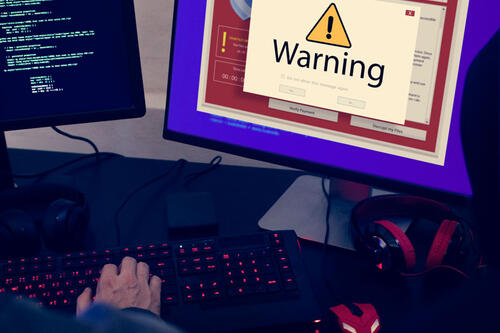
October is National Cyber Security Awareness month. This is the third article in a five-part series on security brought to you by Geneseo’s Information Security Program Team.
Determining what is a phishing email and what is not can be difficult. Spotting a phish will get easier with practice. This phishing IQ test and phishing quiz are designed to help you recognize the next phish.
To protect yourself from phishing and other scams, always be suspicious and use common sense. Phishing and scam emails try to trick you by coaxing you with a “click here” to fix a problem or by offering a “too good to be true" opportunity. Here’s what you can do:
- When in doubt, don't click.
- Never log in to a website from a link in an email. Instead, go to the website and sign in to check for any signs of strange activity.
- If you're concerned, change your password.
- Always think before you click, and never give out your password or financial information by responding to an email.
Cybersecurity is everyone’s responsibility. CIT and the college’s Information Security Team have been working to instill a campus culture of cyber awareness. Phishing emails are our number one security threat. A mock phishing exercise is a way of educating our community to recognize phishing and other malicious emails and helping ensure the College stays safe.
Each month we conduct a mock phishing exercise that will email one fake phishing email to all faculty, staff, and students. The content of the fake phishing emails will vary. If you click on the malicious link, you will be directed to a page that alerts you to your mistake and provides some tips to help you identify and avoid phishing emails in the future. Don’t take the bait!
Don’t hesitate to contact the CIT HelpDesk in Milne Library for help with a questionable email at 585-245-5588.